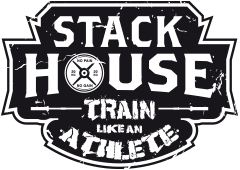Why Carbs Get a Bad Rep — and Why They’re Actually Good for You
Why Do Carbs Have a Bad Reputation?
Carbs. Just the word can make people flinch — thanks to years of fad diets and headlines blaming them for weight gain and low energy. But here’s the truth: carbs are not the enemy. In fact, they’re an essential part of a healthy, balanced diet — especially if you exercise regularly.
Carbs have been painted as villains in the diet world for years, mainly due to low-carb and keto trends. These diets promise quick results by cutting out bread, pasta, rice and even fruit. But what they don’t mention is that not all carbs are created equal.
Highly processed carbs (think white bread, cakes, sugary cereals) can cause blood sugar spikes and leave you feeling sluggish. But whole, complex carbs like oats, sweet potatoes, brown rice and quinoa are packed with nutrients and give you sustained energy.
Why You Need Carbs
Carbohydrates are your body’s main source of energy. They fuel your brain, muscles and nervous system. If you’ve ever tried a workout after skipping carbs, you’ve probably felt tired, weak, or just ‘off’ — that’s because your body didn’t have enough glycogen (stored energy from carbs) to perform well.
Carbs also play a role in recovery. After a workout, your muscles need to replenish glycogen stores. Pairing carbs with protein post-exercise helps repair and build muscle more effectively.
When’s the Best Time to Eat Carbs?
Before a workout: Eating carbs 1–2 hours before training can give you the energy you need to power through your session.
After a workout: This is the time to refuel. A meal with carbs and protein helps with recovery and reduces muscle soreness.
Throughout the day: Including complex carbs in your meals keeps you fuller for longer and supports balanced energy levels — no more 3pm crashes!
Final Thoughts
Carbs aren’t ‘bad’ — misinformation is. Instead of cutting them out, focus on choosing the right kinds and timing them around your activity. Your body (and brain) will thank you!

